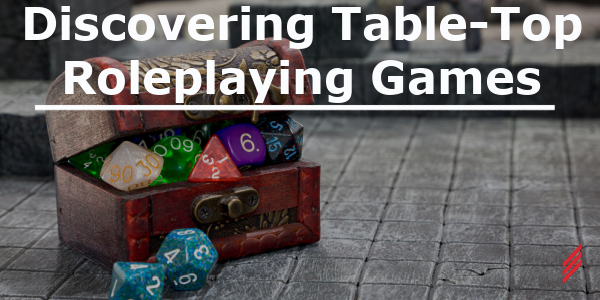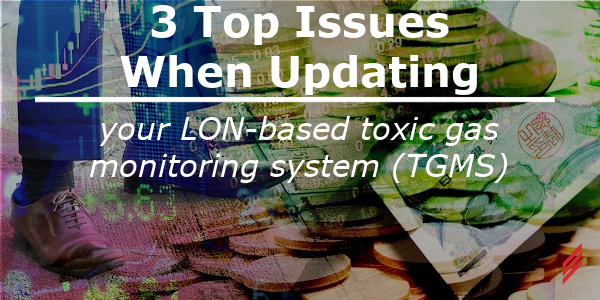Discovering Table-Top Roleplaying Games
by Jeff Babineaux, PE on Nov 7, 2024 10:30:00 AM

When my brother asked me how I made my first character in Dungeons and Dragons, I told him simply that I read the book. Dungeons and Dragons, or D&D, was marketed as a role-playing game, or RPG. To play, you need one person to describe the environment, and ideally another four or five people to play characters in the world who go on high-fantasy medieval adventures with dragons, magic, and peril. Getting started, though, was a lot more about reading and math than I was originally sold on.
Even in 1994, D&D wasn’t the only game in town. We played abandoned soldiers in an irradiated near-future apocalypse of Twilight:2000. We played magical hackers taking on mega-corporations in Shadowrun. With the Open Game License, Creative Commons Licenses and GNU Licenses, there are more free ways to play these RPGs in a host of imaginable worlds than we could have ever bought thirty years ago.
The barrier to getting into these games is usually a lot of heavy reading, the luck of a group of friends with a lot of time to kill, and the money for extra books, often called splatbooks, that gave the extra options that we craved to add variability and color to the worlds that we might not have come up with on our own.
There are more games available now than ever before. For those who are concerned with overly complex games, there are plenty of one-page games out there. On the slightly more complex side, Powered by the Apocalypse (PbtA) games or games that use the Fate Core System are notoriously easy to get the hang of, and the silliness of many titles in PbtA’s catalog make it worth reading through the system.
Finding a group of people whose schedules align is harder now that we’re out of high school, but there are still opportunities out there. There is one group that’s easier than most to get in the same place at the same time, which is family. For those interested in starting a game with family members just starting school, Whither and Whence could be a good option. Once you get to the eight- to twelve-year-old range, Kobolds Ate My Baby is a fun, but loud game where one rule requires barking loudly to avoid danger. In my experience, most themes are manageable enough for kids 12 and older to adapt the rules of existing games.

If you’re an adult looking for other adults to play, check out your Friendly Local Game Store (FLGS) for in-person game nights that are often sponsored by Dungeons & Dragons publisher Wizards of the Coast. While in-person games are typically the most rewarding, online games are easier to find than ever with web platforms starplaying.games, Roll20.net, and Steam-based Fantasy Grounds. Each has forums or search functions to help you find the game system or type of group you’re looking for, and a plentiful fanbase willing to help newcomers learn the game.
Buying a new game? In this economy? Rulebooks for newer games might run $50 or higher, plus many still require a separate rulebook for players (looking at you, D&D). If you have the money, these books include lots of lore, or descriptions of the world for which the rules were written. The artwork in these books can also be a source of inspiration. If you don’t have the money, though, there are always open-license games.
Free games through the Open Game License (OGL), Creative Commons (CC), and GNU General Public License (GNU GPL) have made it easier if you’re short on money, and each has its own website where you can access a more general version of the rules.
Of course, there are RPG video games out there, but these tabletop RPGs mean more to me than video games do. They helped to ignite in me a passion for reading and creativity, developed and focused my attention span, and helped me to learn how to interact with people at a time when I was still trying to figure out how other brains worked. Tabletop Role-playing is being used in therapy to help people deal with anxiety and difficult situations from inside of the safe boundaries of an established game setting. Game systems are catching on to the idea that the table should be a safe place for everyone, and they are building in safety tools to help people at a table raise a hand and say “maybe let’s approach this scene differently,” or “I’m not comfortable right now”, and it’s helping people have difficult discussions. Evil Hat produced a game using the PbtA rules where you could choose a character to play that maybe isn’t the best at everything, but this character is going through something that you want to explore. Even more importantly, experience in the PbtA games only comes when you fail at a task, which has always resonated with me. Check out the links below if you’re interested in learning more about how to get started, and how role-playing in the safe space of a gaming table is used as a therapeutic tool.
Getting Started
Find a FLGS near you!
https://boardgamegeek.com/wiki/page/Friendly_Local_Game_Stores_(FLGS)_of_the_USA
Online Platforms
Role Playing Therapy
https://wwnorton.com/books/9781324030607
https://www.wired.com/story/therapists-dungeons-dragons-tabletop-games-helping-people/
https://therapeuticgamemaster.com/
https://www.harrisburgu.edu/news/new-study-suggests-tabletop-games-offer-benefits-to-reduce-anxiety/
About the Author
Jeff has a B.S. in Electrical Engineering from Louisiana Tech University. Prior to coming to Hallam-ICS, Jeff had 7 years of experience working in prefab construction for mechanical and electrical buildings and skids. He holds a professional engineering license in multiple states, participates in all phases of the project design from concept through construction, and cooks a mean gumbo.
Read My Hallam Story
About Hallam-ICS
Hallam-ICS is an engineering and automation company that designs MEP systems for facilities and plants, engineers control and automation solutions, and ensures safety and regulatory compliance through arc flash studies, commissioning, and validation. Our offices are located in Massachusetts, Connecticut, New York, Vermont, North Carolina and Texas and our projects take us world-wide.
You May Also Like
These Related Stories

Advancing Automation Technology - How to Specify a Domain Controller

The 3 Top issues when upgrading your LON-based Toxic Gas Monitoring System (TGMS)



No Comments Yet
Let us know what you think